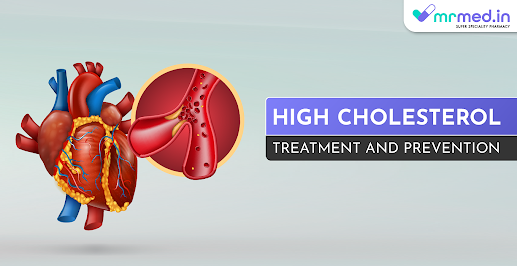High cholesterol levels risk and treatment

High cholesterol levels can pose several risks to your health, particularly to your cardiovascular system. Cholesterol is an essential fatty substance present in the bloodstream, serving a vital role in the body's functions. However, when cholesterol levels become elevated, it can result in the formation of plaque in the arteries, increasing the risk of heart disease and stroke. Here are some of the risks associated with high cholesterol levels: 1. Cardiovascular disease : Elevated levels of LDL cholesterol, commonly known as "bad" cholesterol, can increase the risk of plaque formation in the arteries. This condition, known as atherosclerosis, can be a significant factor in the development of heart disease, heart attacks, and strokes. 2. Hypertension : High cholesterol levels can contribute to high blood pressure, which in turn increases the risk of heart disease and other complications. 3. Peripheral Artery Disease : Cholesterol plaques can also affect the a...


